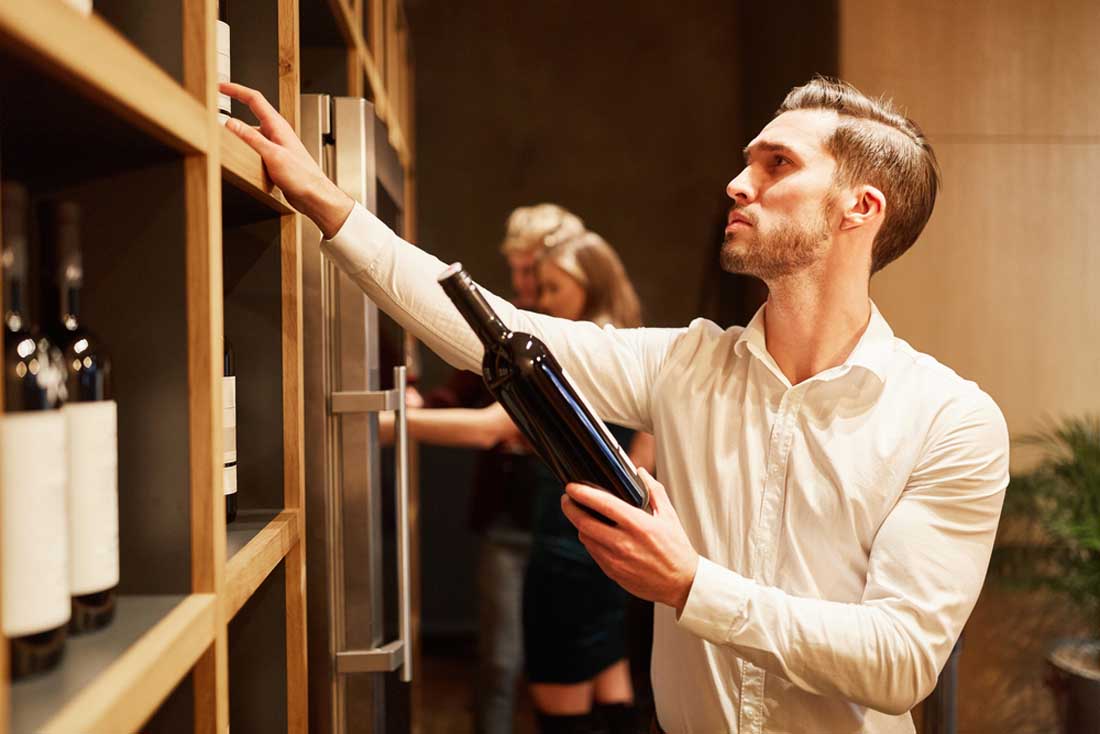
15 Jan How To Make Your Wine Consumption “Green” And Sustainable
There is increasing concern about our environment and the impact on human activity on our world. Many people have started to adopt eco-friendly practices, products, and systems to help protect the environment as much as possible. This shift in attitude has influenced thousands of industries, including wine production.
Makers now use more eco-friendly practices and are committed to reducing their carbon footprint. Consumers also play a big part and can reduce the environmental impact by altering their wine-drinking habits.
What Is Sustainable Wine?
The winemaking industry is taking a few steps to ensure their processes are as environmentally-friendly as they can be. This field is already concerned about the impact of climate and changing weather conditions on their grapes, which means they have an added incentive to develop sustainable practices.
Sustainability is a complex topic in this industry because different organisations have different standards. Some wines are certified organic or sustainable but have practices that still negatively affect the environment. For example, adding ‘approved’ biodynamic and organic copper sulphate fertiliser can increase heavy metal content in the soil. This means vineyard owners must use a tractor to loosen the soil repeatedly, which leads to increased carbon emissions.
Fortunately, there are many non-profit certification organisations governing sustainability standards. They look at factors like:
- Fertiliser use
- Biodiversity
- Irrigation practices
- Energy consumptions at libraries
- Greenhouse gas emissions
- Water management at libraries
- Pesticide use
- Waste reduction and management
- Water filtration and purification systems
- Organic and/or biodynamic practices
If your wine bottle has some sustainability certification, it may have been produced using approved practices. It is still a good idea to investigate every winery’s sustainable processes. Most will explain them in detail on their website because this is a hot topic in the industry today. If you want to do your bit for the environment, adding some eco-friendly wines to your collection is the way to go.
How To Ensure Your Wine Consumption is Environmentally-Friendly?
It isn’t easy to maintain a sustainable wine consumption, especially if you’re a collector and want vintages from all over the world. Wines are delicate beverages that respond quickly to outside changes. Transporting them from one country to another has a significant impact on the environment. If you like to indulge in a good bottle of Bordeaux from France, contributing to carbon emissions is inevitable. However, it is possible to reduce the environmental impact by following good buying and consumption practices. Here are a few tips on how to make your wine consumption green and sustainable:
1. Buy Local Whenever Possible
Local wines don’t need to travel far, which means they don’t cause as much environmental pollution. Australia and New Zealand produce some of the best wines in the world and have a thriving industry. You can find a wide range of red, white, rose, and sparkling wine options here. Some vintages have even won international awards for quality, aroma, flavour, and texture. Some of the best local wine varietals include:
- Shiraz
- Cabernet Sauvignon
- Riesling
- Grenache
- Viognier
- Chardonnay
- Pinot Noir
- Semillon
- Sauvignon Blanc
- Pinot Grigio
- Rosato
These are just some of the many options available to a wine enthusiast in Australia. No matter what kind of drinks you like, there’s something worthwhile produced by local winemakers.
2. Origin of the Wine Matters
Transporting wine by sea is more environmentally friendly than transporting it by land or air. That’s why you need to consider a wine’s origin carefully. Most Asian wines are transported by land or air, which means they are less sustainable and eco-friendly than other alternatives. Wines from the US, New Zealand, and South Africa are often transported by sea so they can be considered more eco-friendly.
European wines involve a combination of both because many countries that produce the beverage are inland. Some countries also have lower suitability standards and no oversight or organisations to ensure they truly follow established industry guidelines.
3. Stay Away From Cheap Wines
Cheap wines that cost less than $10-$20 are mass-produced to cost down costs. It is nearly impossible for mass producers to follow proper sustainable practices and still deliver wines at an affordable price. These businesses consume a lot of energy, generate excessive waste, and don’t always source grades from reliable producers. All of these practices contribute to environmental pollution.
You can get affordable wines from local producers or buy less successful vintages to save some money. There are several affordable and sustainable options available in the market. You can also purchase smaller bottles of good vintages instead of buying in large quantities. Stay away from single-serving wines because they aren’t sustainable and usually aren’t manufactured by reputable wineries.
4. Invest in Proper Storage
Wines will spoil if they’re not stored properly. A study conducted in the US shows that around $1.5 billion worth of wine is poured down the drain every year. A similar study found that around £450 million worth of wine is wasted in the UK every year.
A lot of this waste happens because of poor storage and lack of knowledge about wines. An opened bottle can oxidise and spoil in 24 hours if it isn’t stored properly. Here’s what you need to know about wine storage conditions:
- All wines should be stored in temperatures between 45°F and 65°F.
- Refrigerating the wine is permitted but not ideal for long-term storage. You should consume the beverage within a couple of months to avoid wasting it.
- Make sure the wines are stored in a stable environment. Rattling or excess movement can disrupt the wines and impact their flavour.
- Maintain humidity levels of around 70% to ensure the corks don’t dry out.
- Keep the bottle away from the lights and the sun. UV rays can degrade wines over time.
- Store bottles sideways to ensure contact between the wine and cork.
Pouring wine down the drain causes two significant problems; environmental pollution and food wastage. It is best to order smaller bottles and consume an opened one as quickly as you can. Collectors should invest in good-quality storage solutions to ensure their vintages don’t spoil. If you like to age wine at home, make sure you have proper climate control appliances to maintain the right levels of temperature and humidity.
All of these measures will help ensure your wine consumption is sustainable. Do some research before every purchase. You can easily find information about different varietals, wineries, grape producers, etc., online.
Some of the most well-known environmentally-friendly wine producers in Australia include:
- Harris Organic Wines from Swan Valley
- Dal Zotto Wines from King Valley
- Macquariedale Organic Wines from Hunter Valley
- Tamburlaine from Hunter Valley
- Botobolar from Mudgee
- Lowe Family Wine Company from Mudgee
- Kalleske from Barossa Valley
- Farm Hand from Monash Valley
Several other producers in Australia and New Zealand offer wines made with sustainable practices. They use new, innovative techniques to produce good-quality wines while minimising waste, energy consumption, fertiliser and pesticide use, and more. Many use organic grapes, and a few even produce Vegan wines, so there’s something out there for everyone.
Custom Wine Cellar Design and Installation
As mentioned, no matter which wines you enjoy drinking, you need the right storage options for them. This is where we come in. Signature Cellars is a leader in the custom wine cellar installation space. We handle start-to-end wine cellar design solutions and can plan and build features using eco-friendly solutions.
To find out about how Signature Cellars can help you design and construct a wine cellar and build a wine storage solution that can help protect your investment and add value to your home, call us on 1300 570 636 or email info@signaturecellars.com.au and we will respond shortly.
To find out about how Signature Cellars can help you design and construct a wine cellar and build a wine storage solution that can help protect your investment and add value to your home, call us on 1300 570 636 or email info@signaturecellars.com.au and we will respond shortly.
Thanks for reading,
Neil Smallman
Signature Cellars
1300 570 636




No Comments